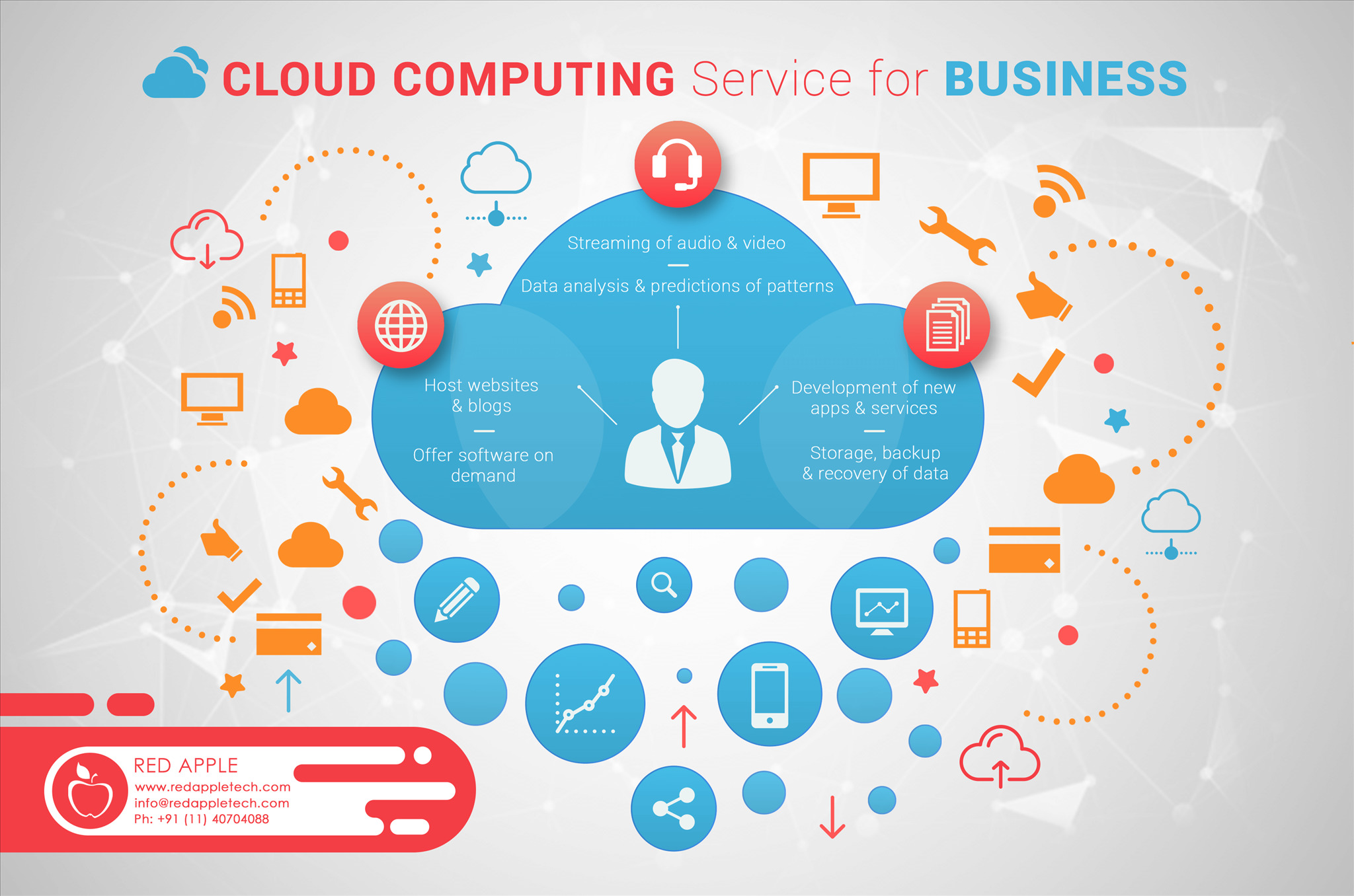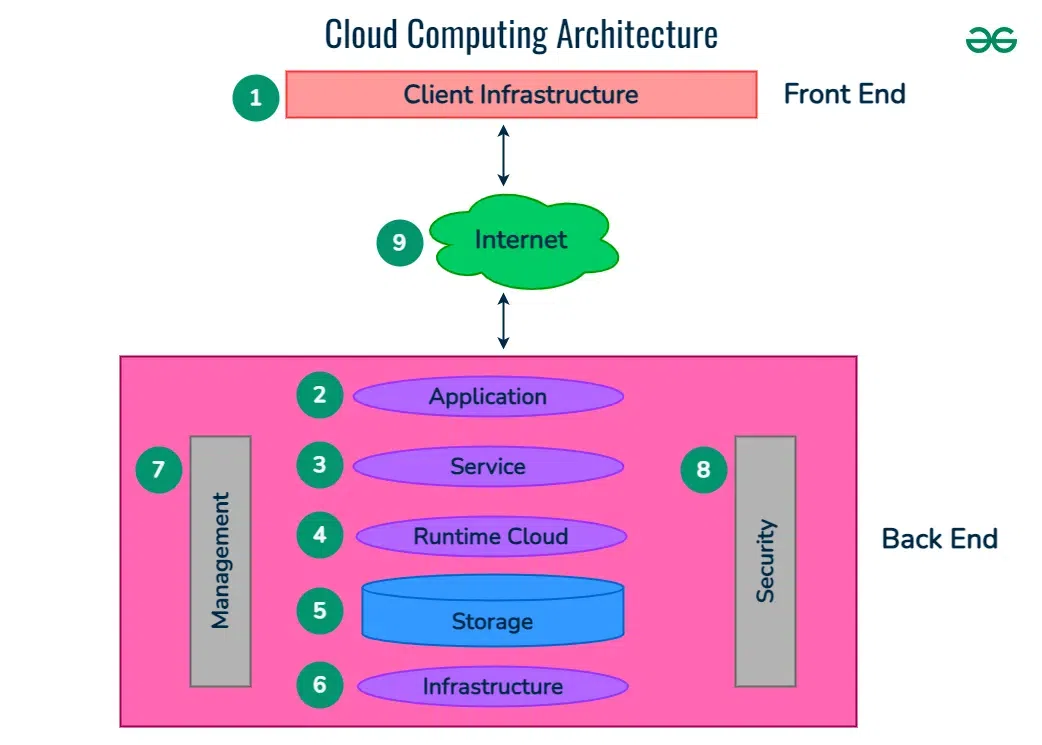Streamline IT Monitoring With Cloud Solutions
Cloud services have emerged as a feasible solution for services looking to improve efficiency, lower costs, and improve total IT performance. How exactly do these cloud services reinvent conventional IT monitoring techniques? Allow's discover the transformative effect of leveraging cloud solutions on IT operations and the key factors to consider for successful application.
Advantages of Cloud Services

Moreover, cloud services allow companies to improve their operational performance by streamlining processes and lowering the time and sources required for managing IT infrastructure. With cloud services, companies can automate regular jobs, such as software updates and information back-ups, liberating IT teams to concentrate on even more calculated efforts that drive company value.

Boosted Scalability and Versatility
Cloud services supply companies with unrivaled scalability and adaptability in managing their IT sources efficiently. Scalability is a crucial attribute of cloud solutions that enables firms to quickly change their IT sources based on demand. With cloud services, businesses can swiftly scale up or down their computing resources, storage ability, and network transmission capacity to meet altering requirements without the demand for substantial in advance financial investments in equipment. This adaptability makes it possible for companies to adapt to rising and fall workloads, seasonal needs, or unanticipated growth without experiencing downtime or performance concerns.
Furthermore, cloud services use the flexibility for staff members to accessibility company information and applications from anywhere, at any moment, and from any kind of gadget with a net link. This capacity improves performance and collaboration amongst remote groups or workers working in various places. In addition, cloud solutions offer the flexibility to pick from a variety of solution models, such as Infrastructure as a Service (IaaS), System as a Solution (PaaS), or Software Program as a Solution (SaaS), based on the particular requirements of business. The enhanced scalability and flexibility supplied by cloud solutions equip companies to optimize their IT procedures and remain dexterous in today's dynamic market environment.

Cost-Effectiveness and Cost Savings
With the capability to effectively allot sources based upon need, businesses making use of cloud solutions can harness considerable cost-effectiveness and understand considerable savings in their IT operations. Cloud solutions use a pay-as-you-go version, permitting firms to only pay for the resources they make use of, removing the requirement for huge ahead of time investments in software and hardware. This scalability ensures that organizations can conveniently adapt to varying needs without overspending on unnecessary sources. Furthermore, cloud solutions lessen upkeep costs by changing the duty of hardware upkeep and software application updates to the provider. This decreases the need for committed IT team to manage framework, further reducing down functional expenses. Moreover, the cloud supplies economies of scale, with carriers spreading out expenses across several clients, causing lower specific expenses for services like storage space and computer power. In general, the cost-effectiveness and financial savings attained through cloud services make it possible for businesses to reapportion sources towards development and growth initiatives.
Improved Safety and Conformity
Enhancing the general safety pose and making sure regulative conformity are vital factors to consider for organizations leveraging cloud services in their IT management strategies. Cloud service companies provide sophisticated safety and security procedures, such as information encryption, multi-factor verification, and automated backups, which can bolster a business's security framework. These suppliers also stick to stringent regulative criteria, such as GDPR, HIPAA, and PCI DSS, helping services fulfill compliance demands better.
Implementing cloud solutions can enhance protection by offering systematized control over gain access to administration, tracking, and data security. This central strategy simplifies security administration and makes sure regular application of security policies across the organization. Cloud services often supply real-time protection updates and spots, minimizing the threat of susceptabilities and prospective violations.
Finest Practices for Cloud Execution
Carrying out cloud services effectively requires an organized technique that encompasses detailed preparation and diligent execution. To guarantee this contact form a smooth change to the cloud, organizations need to start by conducting a detailed analysis of their present IT framework and recognizing which workloads are appropriate for migration. It is vital to establish clear purposes and define crucial performance signs (KPIs) to determine the success of the cloud execution.
One of the very best practices for cloud execution is to thoroughly pick a cloud company that lines up with the company's demands in regards to safety, scalability, cost-effectiveness, and compliance. In addition, producing a detailed movement plan that details the actions included, timelines, and responsibilities is essential for an effective implementation.
On a regular basis keeping track of and optimizing cloud resources to ensure reliable performance and price monitoring is review another important aspect of cloud implementation finest techniques. Continuous examination of the cloud environment and staying notified concerning updates and brand-new functions used by the cloud service provider can additionally enhance the organization's cloud strategy. By following these finest techniques, companies can streamline their IT management and maximize the benefits of cloud services.
Final Thought
In verdict, leveraging cloud solutions for IT management uses numerous advantages, including enhanced scalability, cost-effectiveness, enhanced safety and security, and conformity. In general, cloud solutions enhance operational efficiency and agility in managing IT framework.
In addition, cloud solutions provide the versatility to select from a selection of solution designs, such as Facilities as a Solution (IaaS), Platform as a Solution (PaaS), or Software Application as a Service (SaaS), based on the details requirements of the business. In addition, cloud services minimize upkeep costs by changing the obligation of equipment maintenance and software updates to the solution company.Enhancing the total safety posture learn this here now and making certain governing compliance are critical factors to consider for businesses leveraging cloud services in their IT management approaches.Regularly monitoring and maximizing cloud resources to make sure reliable efficiency and price management is another essential facet of cloud implementation ideal methods. Continuous evaluation of the cloud atmosphere and staying notified regarding updates and new attributes supplied by the cloud copyright can even more boost the organization's cloud strategy.